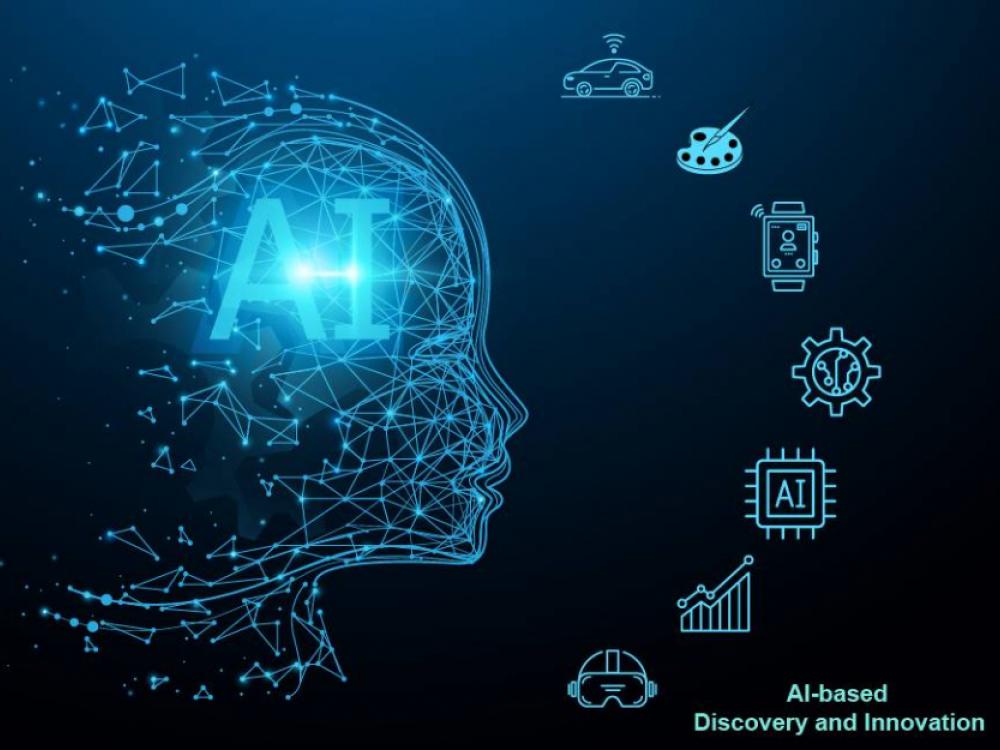The Artificial Intelligence (AI) revolution has been in the making for decades, initially confined to the realms of Silicon Valley startups. Today, AI is breaking into more traditional industries, transforming how businesses operate globally. In this article, we’ll explore how AI is reshaping sectors like travel, banking, and hospitality. We’ll also delve into the implications this technological shift has for businesses and society at large.
Breaking Barriers in Traditional Sectors
AI’s prowess in pinpoint-accurate decision-making has long been vaunted in sectors such as e-commerce and finance. These systems excel in demand forecasting, pricing optimization, and competitive analysis. Traditional industries, often constrained by cost, time, manpower, and outdated technology, have struggled to keep pace. However, the tide is turning.
Travel: Enhancing Experiences and Efficiency

Elevating Customer Service
Imagine planning your dream vacation with a virtual travel assistant. AI-powered chatbots are making this a reality by handling everything from booking flights and hotels to recommending personalized travel experiences. Companies like Fetcherr are spearheading this change by enabling dynamic pricing models that adjust in real-time, ensuring travelers get the best deals.
Boosting Operational Efficiency
Airlines are leveraging AI for predictive maintenance, a game-changer in operational efficiency. By analyzing data from countless sensors on an aircraft, AI can predict potential failures before they occur, minimizing downtime and enhancing safety. This reminds me of a recent trip where, despite a mechanical issue, the quick AI-informed response meant our flight was delayed by less than an hour. It was efficiency at its best!
Banking and Insurance: Redefining Trust and Personalization

Cutting-Edge Fraud Detection
Picture an AI system sifting through millions of transactions per second, flagging fraudulent activities with uncanny precision. That’s the power of modern AI in banking. Machine learning algorithms detect patterns of fraud that human eyes could easily miss, ensuring quicker and more accurate responses.
Personalized Financial Services
Gone are the days of generic financial advice. Today’s AI systems analyze spending habits, financial goals, and even individual risk tolerance to offer tailored advice. Whether it’s investment strategies or loan options, AI-driven personalization is revolutionizing how banks serve their customers.
Hospitality: Redefining Guest Experiences

The Dawn of Smart Rooms
Picture a hotel room that adjusts its settings based on your preferences. Thanks to AI, smart rooms are becoming a reality. From lighting and temperature to entertainment options, everything can be controlled via voice commands. My recent stay at a smart hotel left me amazed at how seamlessly AI can enhance a guest’s experience.
Managing Workforce Efficiently
AI tools enable hotels to predict peak times and optimize staffing levels, ensuring consistent service quality. This is a game-changer during busy seasons, allowing hotels to manage their resources more efficiently.
Trends and Innovations: The AI Front-Runners
Startups like Fetcherr, Argo AI, and OpenAI are leading the charge in deep learning AI technology. These companies facilitate a smooth transition to data-driven models, making operations more cost-effective and transparent.
Startups Making Waves
- Fetcherr: Specializes in dynamic pricing and demand forecasting, primarily in aviation.
- Argo AI: Focuses on autonomous vehicle technology, pushing boundaries in transportation.
- OpenAI: Offers a wide range of AI solutions from natural language processing to advanced machine learning.
Societal Impact: A Double-Edged Sword
The positive impacts of AI integration in traditional sectors are manifold, resulting in enhanced efficiency and accuracy that lead to better services and happier customers. However, ethical considerations must not be overlooked.
Transparency and Trust

As Shimi Avizmil, Co-founder and CTO of Fetcherr, rightly points out, AI’s impact goes beyond integrating capabilities like vision and NLP (Natural Language Processing). “Once AI takes control over the myriad micro-decisions an organization makes, it not only reduces HR costs but also opens new business opportunities.”
However, transparency remains crucial. AI systems must be unbiased, and their decision-making processes clearly explained. Human oversight is vital in maintaining ethical standards.
Future Predictions: Navigating Uncharted Waters
AI will inevitably become a standard feature across almost every industry. Businesses that adopt and integrate AI technologies will gain a competitive edge, offering superior customer experiences.
The Ethical Frontier
Future societies will demand transparency and unbiased AI systems. Explanations for AI-driven decisions must be clear, ensuring that all ethical considerations are addressed. Trained human supervisors will play a pivotal role in this ecosystem.
Conclusion
The AI revolution is no longer on the horizon; it is here, transforming traditional industries in real-time. While challenges remain, particularly in ethical implementation, the opportunities for improved efficiency and customer satisfaction are immense. The companies that embrace these technologies today will be the trailblazers of tomorrow, setting new standards for excellence.
For further reading, check out the following resources:
Feel free to share your thoughts and experiences in the comments section below. How is AI transforming your industry?




